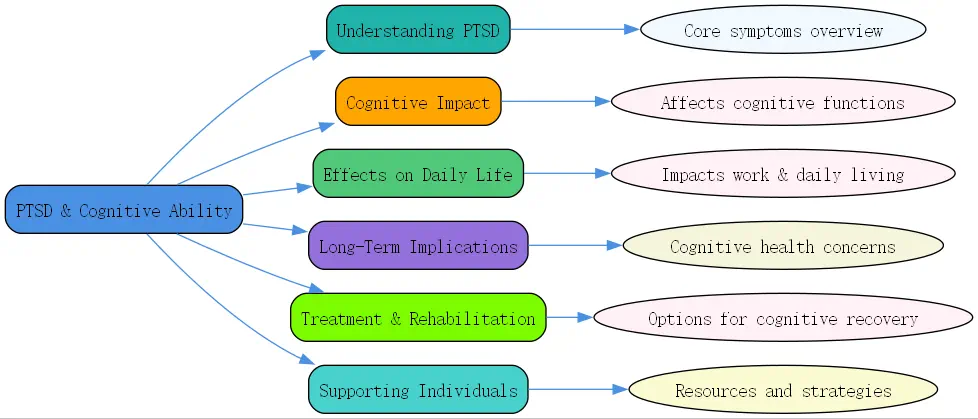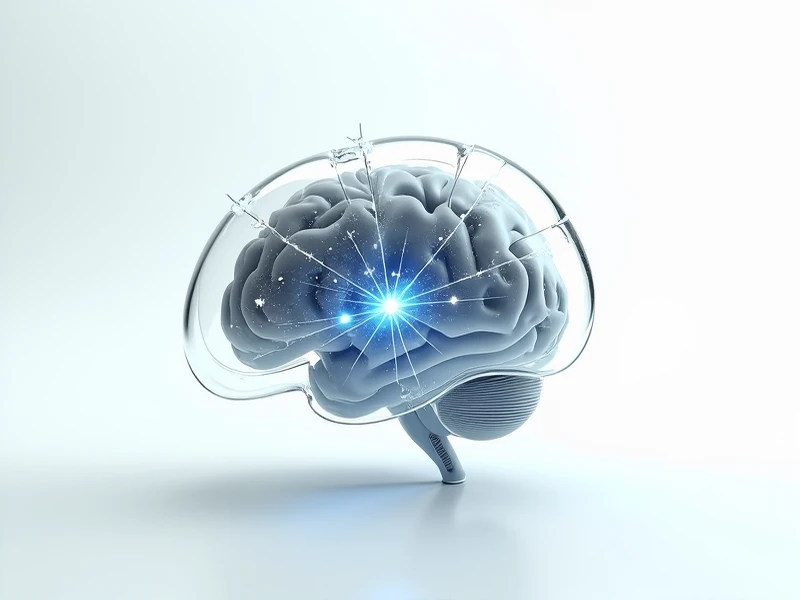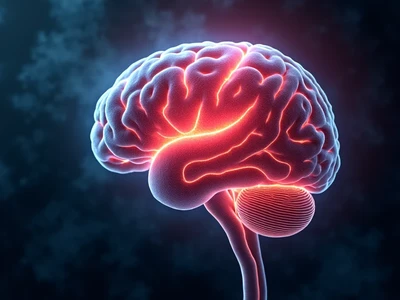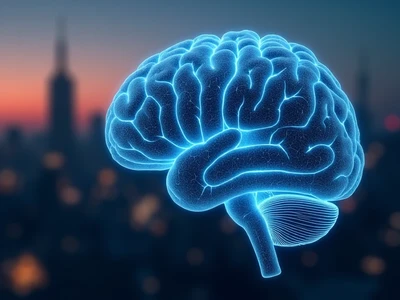Does PTSD Affect Cognitive Ability? An In-Depth Exploration

Post-Traumatic Stress Disorder (PTSD) is a complex mental health condition that can profoundly impact various aspects of an individual’s life, including their cognitive abilities, work performance, and day-to-day functioning. Addressing this condition requires a deep understanding of its symptoms, effects, and proven strategies for management.
In this article, we’ll examine the effects of PTSD on cognition, explore its implications for work and daily life, and highlight effective treatment options for recovery.
Understanding PTSD and Its Core Symptoms

Defining Post-Traumatic Stress Disorder (PTSD) PTSD arises as a result of experiencing or witnessing traumatic events, such as violent assaults, accidents, or natural disasters. It is characterized by severe anxiety reactions that persist long after the event has occurred. According to experts at BrainTalking, PTSD differs from generalized anxiety disorders due to its intrinsic relationship with past traumatic experiences.
Key Symptoms of PTSD The symptoms of PTSD can be classified into four major categories:
- Flashbacks: Intrusive memories or vivid re-experiences of the traumatic event.
- Avoidance: Avoiding situations, locations, or thoughts that remind one of the trauma.
- Negative Thoughts and Feelings: Mood changes, feelings of worthlessness, or persistent guilt.
- Hyperarousal: Heightened vigilance, irritability, difficulty sleeping, or exaggerated startle responses.
Though PTSD is unique, it shares some overlapping symptoms with other anxiety disorders, such as Generalized Anxiety Disorder (GAD) and social anxiety.
The Impact of PTSD on Cognitive Functions
How PTSD Affects Memory and Concentration Does PTSD affect cognitive ability? Absolutely. Studies show that PTSD patients often experience difficulties with short-term memory tasks and struggle with concentration. Flashbacks and intrusive thoughts relentlessly disrupt focus, making it difficult to retain new information or complete tasks efficiently.
Cognitive Impairments Associated with PTSD PTSD can inhibit several key cognitive functions:
- Attention: Individuals with PTSD struggle to maintain attention, often distracted by traumatic memories.
- Executive Function: Decision-making and problem-solving abilities are frequently impaired.
- Processing Speed: Cognitive processing slows down due to the brain’s heightened emotional load.
Does PTSD Affect Cognitive Ability in the Long Term? While treatment can alleviate symptoms, untreated PTSD may lead to irreversible cognitive decline over time. Chronic stress associated with PTSD can damage areas of the brain, such as the hippocampus, impacting memory retention and emotional regulation.
PTSD and Its Effects on Work and Daily Life
How Does PTSD Affect Ability to Work? PTSD can significantly disrupt an individual’s ability to work. Struggling with focus, memory, and emotional balance hampers productivity and job performance. Tasks that require sustained attention become particularly challenging for PTSD sufferers.
Challenges Faced by Individuals With PTSD in the Workplace The workplace often intensifies symptoms of PTSD due to triggers like deadlines, interpersonal interactions, or high-pressure environments. Sufferers may find it difficult to:
- Communicate effectively with colleagues.
- Meet expectations.
- Manage stressful situations, leading to burnout or absenteeism.
How Does PTSD Limit Ability to Work and Overall Functioning? PTSD limits one’s ability to work by impairing cognitive functions like concentration and processing speed while imbuing emotional instability. Additionally, avoidance behaviors may prevent individuals from attending meetings or engaging with team members. For many, the fear of judgment or failure exacerbates workplace challenges.

Strategies for Managing PTSD Symptoms and Improving Work Performance Effective strategies to mitigate work-related challenges include:
- Therapeutic Support: Receiving professional treatment such as Cognitive Behavioral Therapy (CBT).
- Stress Management Techniques: Integrating mindfulness or relaxation exercises into daily routines.
- Open Communication: Informing employers about the condition to seek accommodations.
Long-Term Implications of PTSD on Cognitive Health

The Role of Anxiety and Stress in Cognitive Decline Stress and anxiety are intimately tied to cognitive decline, with PTSD serving as a prime example. Chronic stress impairs memory, logical reasoning, and emotional regulation. PTSD frequently coexists with other anxiety disorders like social anxiety or panic disorder, further exacerbating cognitive problems.
How Anxiety Disorders Contribute to Cognitive Difficulties Anxiety disorders such as Generalized Anxiety Disorder (GAD) and Social Anxiety Disorder (SAD) share overlapping features with PTSD, including difficulty concentrating and emotional overreaction. For patients experiencing severe stress, these disorders can disrupt daily life and cognitive functionality.
The Impact of Panic Attacks and Phobias on Cognitive Abilities Panic attacks add another dimension of complexity. These intense moments of fear cause physical symptoms such as hyperventilation and trembling, but they also impair memory and decision-making during episodes. Individuals with phobias may associate fear with specific situations, further limiting their day-to-day functionality.
Treatment Options and Cognitive Rehabilitation for PTSD
Cognitive Behavioral Therapy (CBT) for PTSD CBT is one of the most effective methods for addressing PTSD symptoms. It helps patients identify maladaptive thought patterns and replace them with healthier mental frameworks, boosting cognitive flexibility and emotional resilience.
Medications and Their Effects on Cognitive Function Antidepressants and anti-anxiety medications are often prescribed for PTSD. While they help stabilize mood and reduce intrusive thoughts, certain medications may temporarily impair cognitive abilities, such as memory and focus.
The Importance of Mindfulness and Stress-Reduction Techniques Mindfulness exercises such as meditation and deep breathing can improve attention span, enhance emotional regulation, and reduce PTSD-related stress. These techniques empower individuals to control intrusive thoughts and regain cognitive balance.
Supporting Individuals with PTSD: Resources and Strategies
Practical Strategies for Managing Cognitive Symptoms of PTSD To combat cognitive limitations caused by PTSD, individuals can utilize:
- Improving Focus: Cognitive training apps and exercises that strengthen attention.
- Memory Aids: Tools like journals or digital organizers to keep track of tasks and events.
- Lifestyle Adjustments: A healthy diet, regular exercise, and consistent sleep schedules to support brain health.
Available Resources and Support Networks Seeking professional help remains a cornerstone of PTSD recovery. Online counseling platforms like BetterHelp offer accessible support options that cater to diverse needs. Find information on how long does postpartum depression last here — a resource that demonstrates how mental health challenges require tailored approaches.
When to Consult a Mental Health Professional If PTSD symptoms persist for several months or interfere with daily life activities, consulting a mental health professional is crucial. Early intervention prevents long-term cognitive impairments and enables individuals to regain control of their lives.
Takeaways
- PTSD affects cognitive abilities like memory, attention, and decision-making, potentially leading to long-term impairments.
- The condition disrupts work performance by limiting focus, productivity, and emotional stability.
- Effective strategies include receiving professional therapy, adopting mindfulness techniques, and utilizing organizational tools.
- Support networks like BetterHelp provide affordable and accessible solutions for those managing PTSD symptoms.
PTSD recovery is a journey, not a destination. With expert advice, actionable strategies, and community resources, individuals affected by PTSD can rebuild their cognitive abilities and regain control over their lives. BrainTalking remains committed to equipping readers with the knowledge and support they need to navigate challenges and thrive.
Q&A Section
Q: How does PTSD limit ability to work? A: PTSD impacts work ability by impairing cognitive functions like focus, memory, and emotional consistency. Triggers in the workplace can exacerbate symptoms, making it difficult for individuals to meet deadlines, collaborate effectively, or handle stress. Seeking treatment and implementing workplace accommodations can significantly improve job performance and overall functioning.




